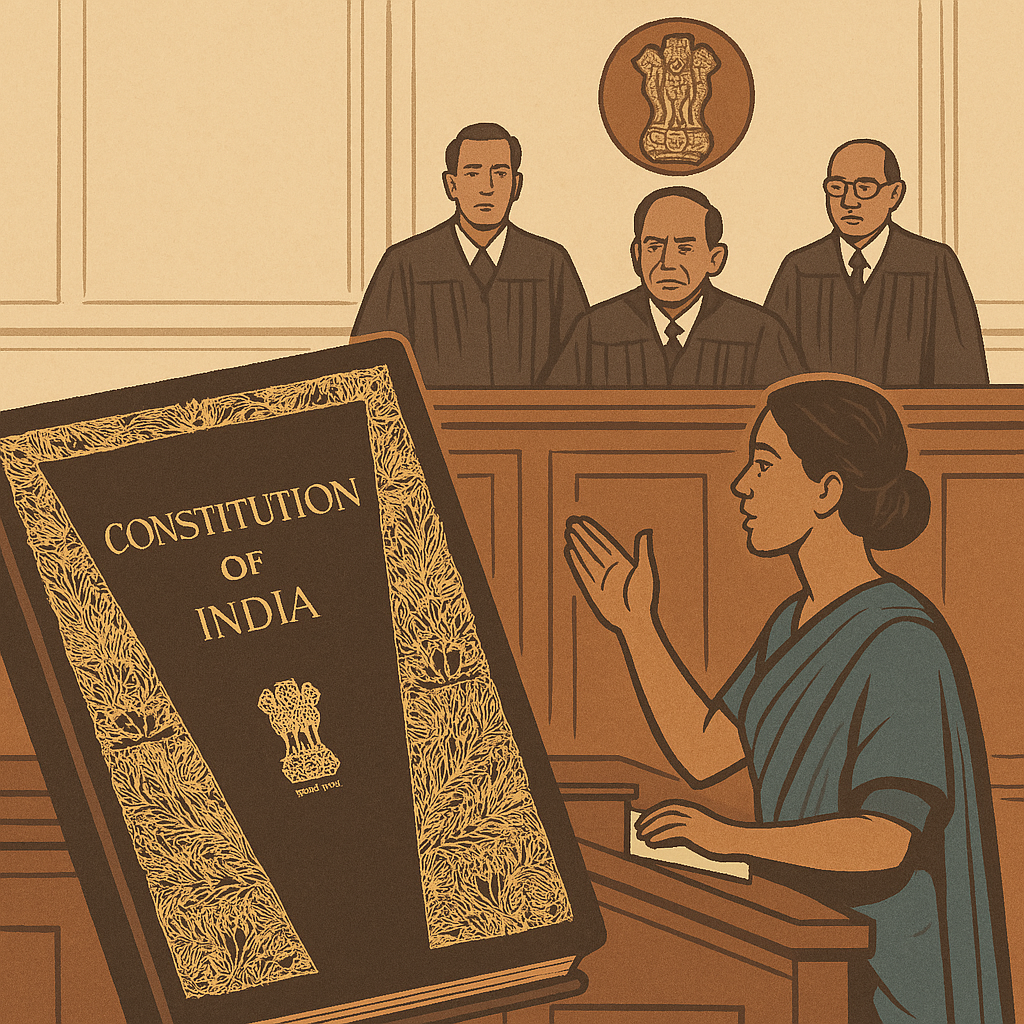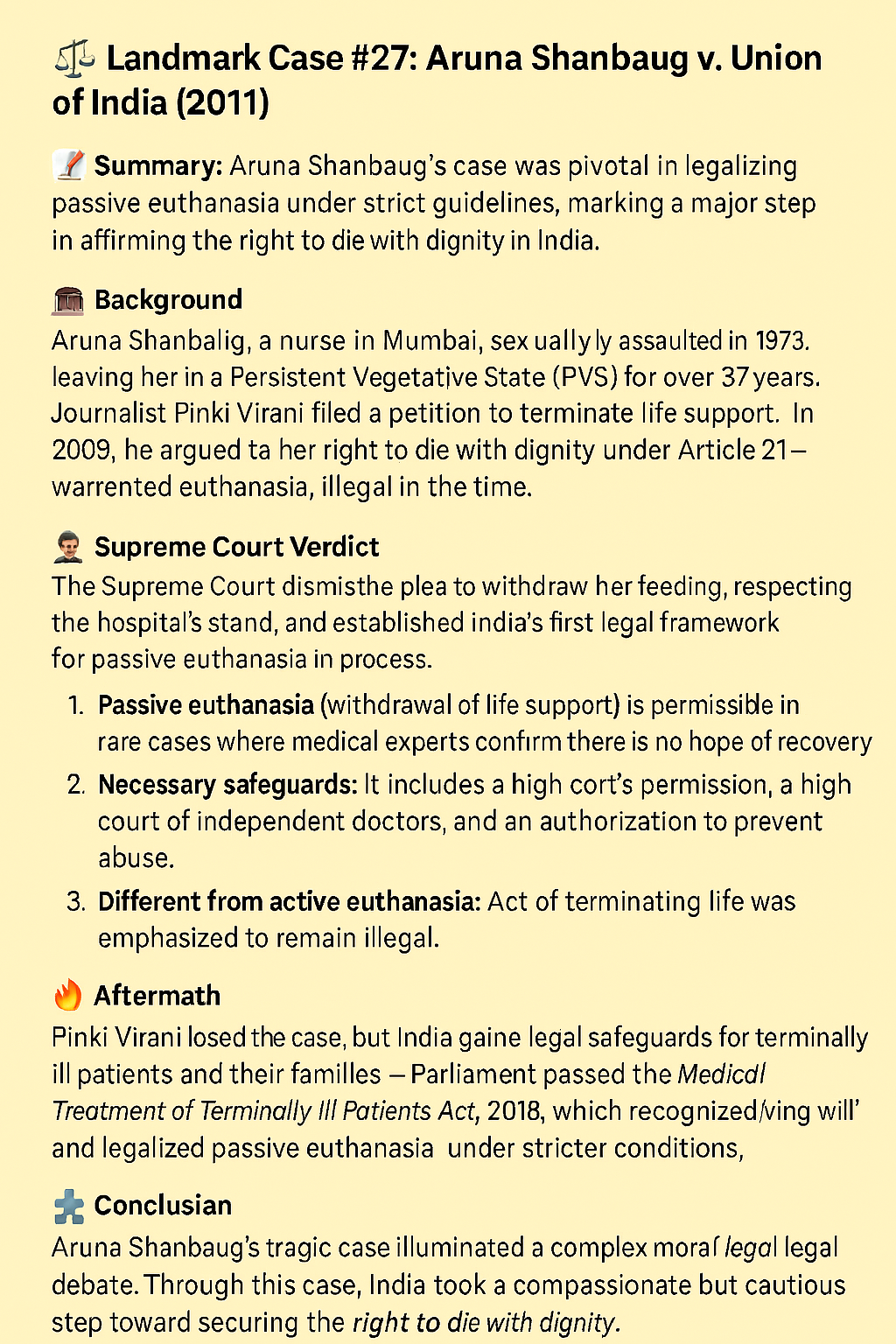Shreya Singhal v. Union of India (2015)
⚖️ Landmark Case: Shreya Singhal v. Union of India (2015) (Struck down Section 66A of the IT Act) 📝 Summary:The Court struck down Section 66A of the IT Act, which criminalized online speech, and upheld the freedom of expression in the digital age. 📚 Background Section 66A of the Information Technology Act, 2000 was vague and overbroad. People were getting arrested for posting memes, satire, political opinions, or even “offensive” messages on WhatsApp and Facebook. Law student Shreya Singhal filed a PIL after two girls were arrested for criticizing the Mumbai bandh post Bal Thackeray’s death. 🧑⚖️ Supreme Court Verdict The Court struck down Section 66A as unconstitutional. Violation of Article 19(1)(a)The law violated the freedom of speech because it was vague, subjective, and overly broad. Online speech = Protected speechThe internet is a modern platform for free expression, and constitutional rights apply here too. Reasonable restrictions must be clearly definedSection 66A did not meet the tests under Article 19(2) (public order, decency, defamation, etc.). 🧠 Significance First major ruling on digital rights in India. Stopped the misuse of law to suppress dissent online. Protected free speech in the digital era. 🧩 Conclusion The Shreya Singhal judgment was a bold statement: freedom of speech doesn’t vanish just because it’s online. It became a defining moment for civil liberties in cyberspace.


